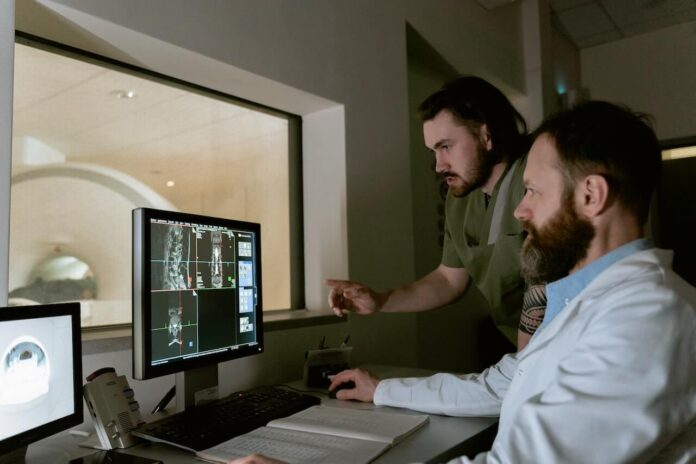A frequently removed organ by doctors may hold the key to fighting cancer! Nestled inconspicuously behind the sternum lies the thymus gland, often dismissed as vestigial in adulthood. Yet, recent groundbreaking research is forcing a reevaluation of its significance, challenging the notion of its redundancy.
Thymus Gland, the organ that can fight cancer
A comprehensive retrospective study, named “Health Consequences of Thymus Removal in Adults” has unveiled that the thymus gland, contrary to previous assumptions, is far from dispensable. A team of US researchers has unearthed a startling correlation: individuals who undergo thymus removal face a substantially heightened risk of mortality from diverse causes later in life. The implications are not confined to mortality alone, as an elevated susceptibility to cancer also plagues those who bid adieu to this seemingly innocuous gland.
However, it’s imperative to emphasize that this study, though enlightening, is observational, unable to definitively establish a causal relationship between thymus removal and fatal ailments, including cancer. Nevertheless, experts are raising alarm bells in light of these findings. Without more conclusive evidence, they posit that safeguarding the thymus gland should be accorded paramount importance within clinical practices.
“The magnitude of risk was something we would have never expected,” revealed oncologist David Scadden in a conversation with Anne Manning at the Harvard Gazette, underscoring the gravity of the findings.
During the formative years of life, the thymus gland plays a pivotal role in nurturing the immune system. Childhood thymus removal manifests as an enduring diminishment in T-cells, vital white blood cells responsible for warding off pathogens and diseases. Furthermore, children devoid of the thymus display compromised responses to vaccination, thus highlighting the gland’s multifaceted contributions to immunity.
Conversely, as puberty approaches, the thymus involutes, producing fewer T-cells for the body’s defense mechanisms. This warning function has led to the prevailing notion that the thymus could be removed without immediate harm, a procedure often performed during cardiothoracic surgeries. However, while a thymectomy is necessary in cases of thymus cancer or chronic autoimmune disorders like myasthenia gravis, it’s imperative to dispel the misconception that the thymus is a hindrance.
What thymectomy means?
Thymectomy is a surgical procedure that involves the removal of the thymus gland. The thymus is a small organ located in the upper chest, behind the sternum (breastbone). While it plays a crucial role in the development of the immune system during childhood, producing and maturing T-cells that help fight infections and diseases, its significance diminishes as people age.
Thymectomy is commonly performed for various medical reasons, including the treatment of conditions like thymus cancer and myasthenia gravis, an autoimmune disorder that affects muscle control. In myasthenia gravis, the immune system mistakenly attacks muscle receptors, leading to muscle weakness and fatigue. Removing the thymus can help alleviate symptoms in some cases.
Emerging from a wealth of patient data sourced from a state healthcare system, a team of researchers in Boston embarked on a meticulous comparison of outcomes following cardiothoracic surgeries. This comprehensive analysis encompassed more than 6,000 individuals who retained their thymus (controls) and 1,146 who underwent thymus removal.
Stark revelations emerged from this investigation. Those subjected to thymectomy exhibited an alarming twofold increase in the likelihood of succumbing within five years, even after accounting for variables like age, sex, race, and pre-existing conditions such as thymus cancer, myasthenia gravis, or postoperative infections. Furthermore, the thymus-extracted cohort displayed a similar elevated risk of cancer incidence within the same time frame.
The implications of these findings are profound, with the cancers detected in thymectomy patients frequently displaying heightened aggression and recurrence post-treatment, a stark contrast to the control group. While the precise mechanisms underpinning these associations remain elusive, researchers posit that the absence of the thymus potentially disrupts the harmonious function of the adult immune system.
An intriguing subset of patients subjected to thymectomy displayed a discernible scarcity of diverse T-cell receptors in their bloodwork. This intriguing observation provides a potential link to the subsequent development of cancers or autoimmune diseases following surgery.
Conclusively, the study’s authors assert, “Together, these findings support a role for the thymus contributing to new T-cell production in adulthood and to the maintenance of adult human health.” The implications reverberate strongly, indicating that the thymus, contrary to prior understanding, serves as a vital sentinel of our well-being throughout life’s journey, affirming its functionally pivotal role until the end. The study was published in The New England Journal of Medicine and you can read it here.

